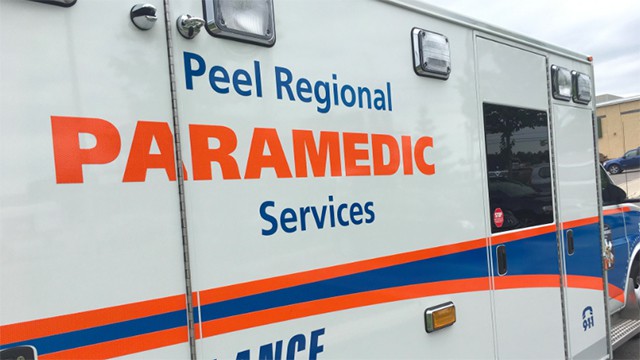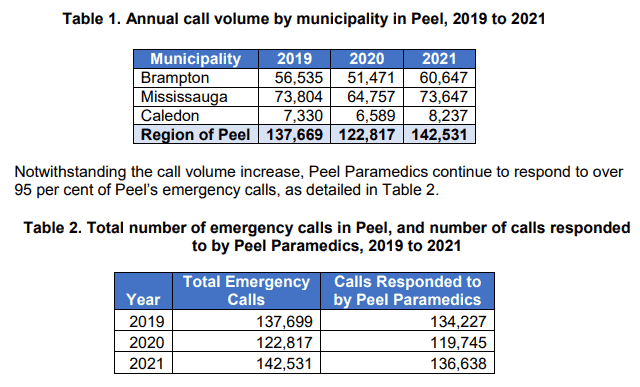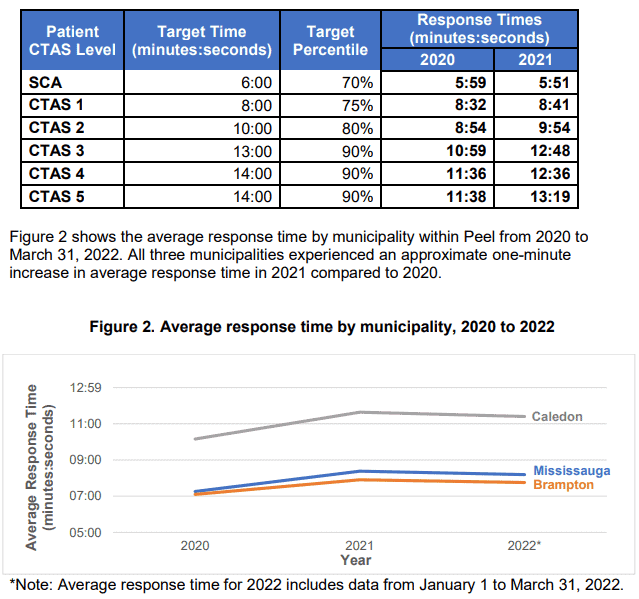Mississauga, Brampton paramedics still face pressure from COVID-19, rising healthcare demands
Published June 21, 2022 at 2:14 pm

A recent report is calling for new measures to alleviate some of the stress on Peel paramedic services.
Nancy Polsinelli, Commissioner of Health Services, says service system pressures on paramedic services have been amplified by the COVID-19 pandemic.
These pressures, as well as escalating healthcare demands, are said to be challenging the service’s sustainability “to meet ongoing service demands as Peel continues to recover from the pandemic.”
Increasing ambulance call volumes, rising offload delays, unprecedented levels of staff absenteeism, and challenging working conditions associated with service delivery during the pandemic, are cited as examples of escalating healthcare demands.
To help solve the issue, the report recommends the immediate addition of two 24/7 ambulances (with an estimated cost of $953,000 funded from the Tax Supported Capital Reserve) and the equivalent to 22 Full Time Equivalent (FTE) positions, with an estimated annual gross cost of $3.34 million.
According to Polsinelli’s report, Peel paramedics have sustained strong overall performance despite growing demands and a lasting impact brought on by the COVID-19 pandemic.
“Peel’s community paramedicine program ensures that service delivery continues to adapt to changing community needs, while supporting our workforce in those areas that matter the most,” says the report.
“Paramedic Services will need to continue to be resourced at levels to meet demand allowing it to adapt to a health system that is recovering from the pandemic and assume ongoing challenges associated with population growth and aging in Peel.”
Data shows that the total number of calls to paramedics throughout the region has increased considerably from 2019 to 2021. In 2021, Peel paramedics received 142,531 emergency calls, of which they responded to 136,638.

Average paramedic response times were also listed, showing that it took paramedics longer to respond to most incidents in 2021.

The full report will go to Regional council this Thursday (June 23) for further deliberation.
This isn’t the first we’ve heard of the pandemic negatively affecting paramedic services — a report from last October indicated Peel Region paramedics were 32 seconds slower when responding to critically ill patients in 2020, due in part to challenges related to the pandemic.
And while most medical calls managed to stay within levels set by both Regional Council and the province, critical call response times were still “over target” or slower in 2021.
“During the height of the third wave, every call was related to COVID, so heightened precautions and anxieties have led to wellness decline where more paramedic absences are occurring,” the report reads.
Response times are measured “from when the paramedic is notified to when they complete their initial assessment of the patient,” and the eight-minute target for critical calls is set by the Ministry of Health and Long-Term Care.
With files from Ryan Rumbolt



